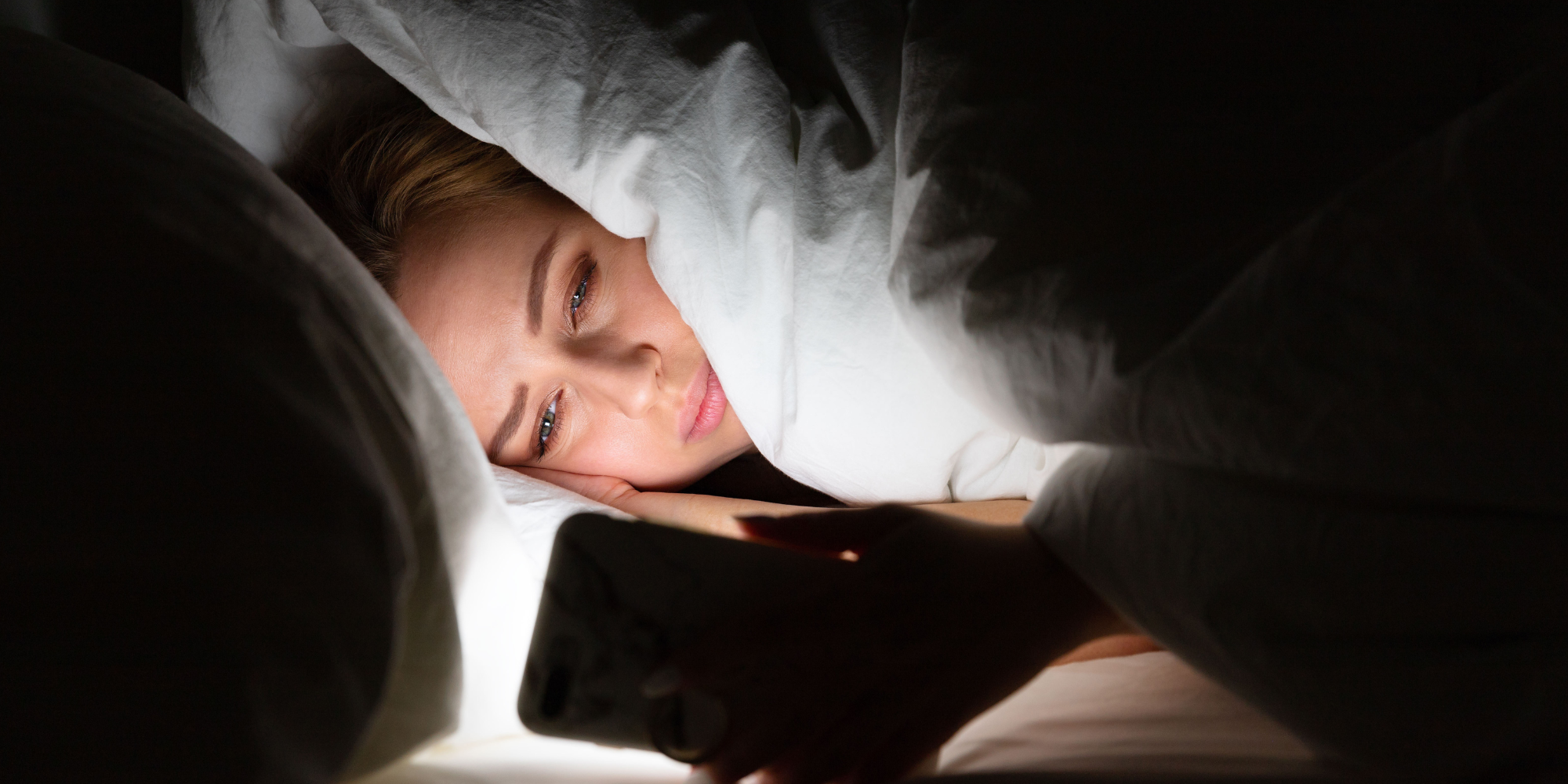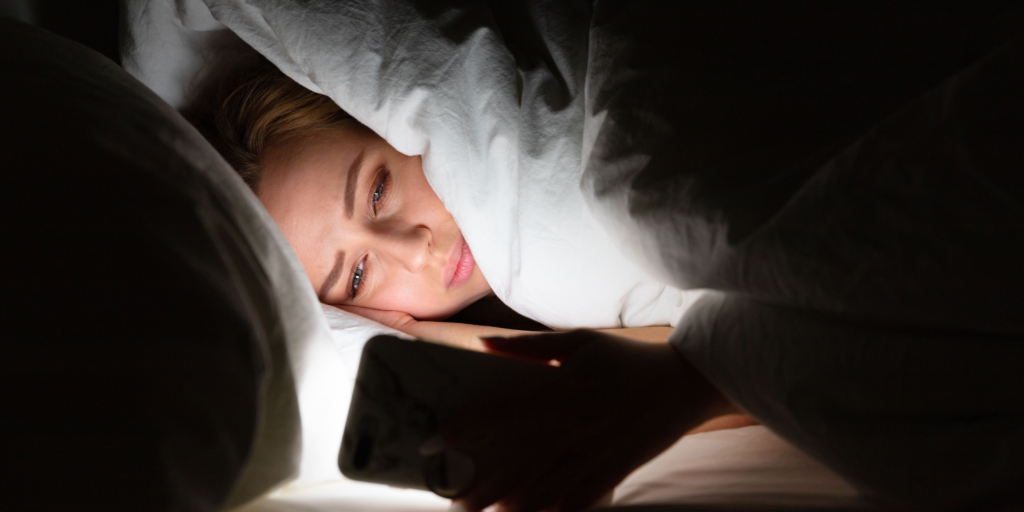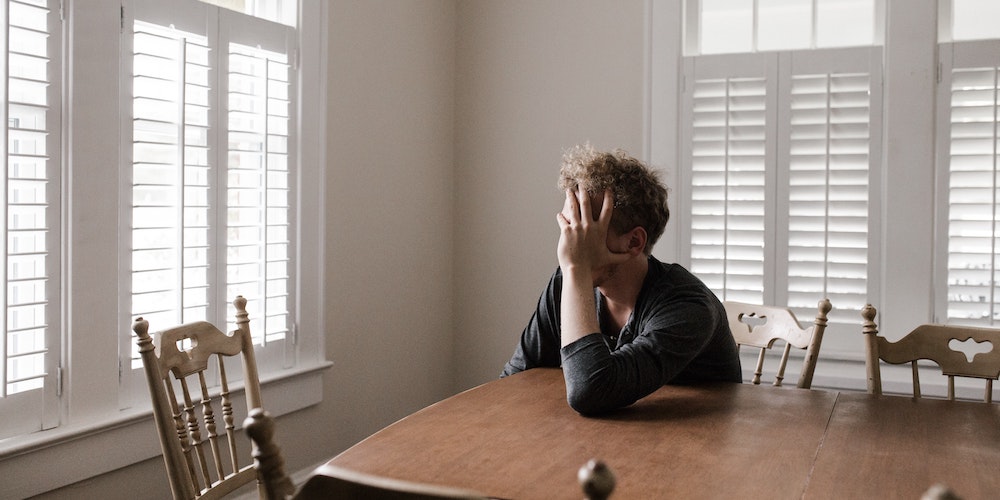Overcoming Revenge Bedtime Procrastination for Better Mental Health

What is Revenge Bedtime Procrastination?
After a long day of fulfilling obligations, completing tasks, and taking care of others, that stretch of time before going to bed can feel sacred: your time to spend however you please. But what if you consistently stretch that time so far that you inadvertently get stuck in a cycle of going to bed too late, sacrificing precious sleeping hours and thus compromising your overall mood, energy, and functioning over time?
If you find yourself repeatedly staying up too late to carve out time for yourself, you may be experiencing a phenomenon known as “Revenge Bedtime Procrastination.” Originally coined by Chinese writer Daphne K. Lee, the term is defined as “‘a phenomenon in which people who don’t have much control over their daytime life refuse to sleep early in order to regain some sense of freedom during late night hours.'”
If you are over-committed or rarely taking time during the day to care for your own needs, you may find yourself growing frustrated with the lack of time for yourself. In a day that is packed with to-dos, night time is likely the only time you have unscheduled free time.
Additionally, studies have found that many people’s sleep habits worsened with the pandemic. According to Jade Wu, Ph.D., as reported by Sleep.com, “‘During the pandemic, a lot of people’s routines went out the window. Many of us had more flexibility in when and how we can work, so the external boundaries of when we go to bed and when we get up got blurry.’” Aside from the pandemic, the constant business of day-to-day life can catch up to all of us, and stress can manifest in procrastination.
What characterizes Revenge Bedtime Procrastination?
While it may look different for everyone, here are the basics:
- An awareness that you should be sleeping instead of staying up late, and that this can lead to consequences.
- Less time to sleep overall.
- No reason for the delayed bedtime, except wanting more time to yourself.
While you may understand that what you are doing can negatively impact your sleep, as well as your overall functioning the following day, it can still feel good to claim this time as your own, and so the cycle continues. This continued behavior despite awareness of the consequences is called an “intention-behavior gap.”
The need to decompress after a long day is valid, but too little sleep can affect one’s moods and mental and physical health. Engaging in bedtime procrastination can lead to sleepiness during the day, affecting your work or other responsibilities. Putting off sleep can also often be linked to procrastinating in other areas of your life.
What to do about Revenge Bedtime Procrastination
Here are some strategies for interrupting the cycle of bedtime procrastination:
- Integrate self-care into your day. This can look different for everyone, but think of small ways to reduce stress throughout the day. Try setting small boundaries if you’re over-scheduled, a healthy meal-delivery service if cooking dinner every night is stressful, or even just a few minutes of breathing exercises throughout the day.
- Decide on a bedtime and stick to it. While there may be nights when you have external circumstances that prevent you from sticking to a set bedtime, it can still be helpful to decide on a realistic bedtime that allows for adequate sleep and set the intention to adhere to it. If it’s helpful, identify an accountability partner like a close friend or your partner.
- Create a bedtime routine. Include time for relaxation like unwinding with a book, journaling about your day or upcoming events, meditating, or taking a bath.
- Limit screen time as bedtime approaches. Exposure to blue light too close to bedtime can hinder the body’s natural production of melatonin, and thus interrupt sleep. Set time limits on your devices, or keep them in a different room to avoid temptation. Try to make your bedroom as screen-free as possible in the hour or so leading up to bedtime.
- Move throughout the day. While 150 minutes of exercise a week is the suggested minimum for adults, any exercise you can include in your day is better than none for helping to improve sleep quality and reduce fatigue during the day.
- Create a cozy sleep environment. Evaluate what’s working and what isn’t in your bedroom. Consider adding softer lighting or blackout curtains. If you struggle with noise (or lack thereof) bothering you in the night, add a white noise machine or play ocean sounds on your phone.
- When you lie down, put the day behind you. If your to-do list feels like it never ends and the stress of what still needs to be done is contributing to your bedtime procrastination, try not to put too much pressure on yourself if some tasks need to wait until the next day, or even the weekend.
- Talk to a loved one or therapist. Even when your problems feel insurmountable, talking to a trusted friend or a therapist can help relieve stress. A therapist can also help you identify coping strategies, giving you healthier ways to manage your stress and anxiety. If you’re facing more than day-to-day stress, it’s even more important to talk to someone you trust about how you feel.
Sleep is Self-Care
Prioritizing restful sleep can improve stress levels and overall physical and mental health. Finding ways to reduce stress, manage your days better, and prioritize yourself can help reduce the tendency to procrastinate bedtime. If you continue to struggle with sleep, or any other issue that feels too big to tackle alone, consider starting therapy with a provider in the Great Lakes Psychology Group network. Our network is made up of hundreds of providers who offer online on in-person therapy in Michigan, Illinois, Wisconsin, and Minnesota.
Ready to prioritize your mental health?
Great Lakes Psychology Group is here to help. With an extensive network of caring therapists available to meet online or in-person, we make it easy to find the right fit for your unique needs.




